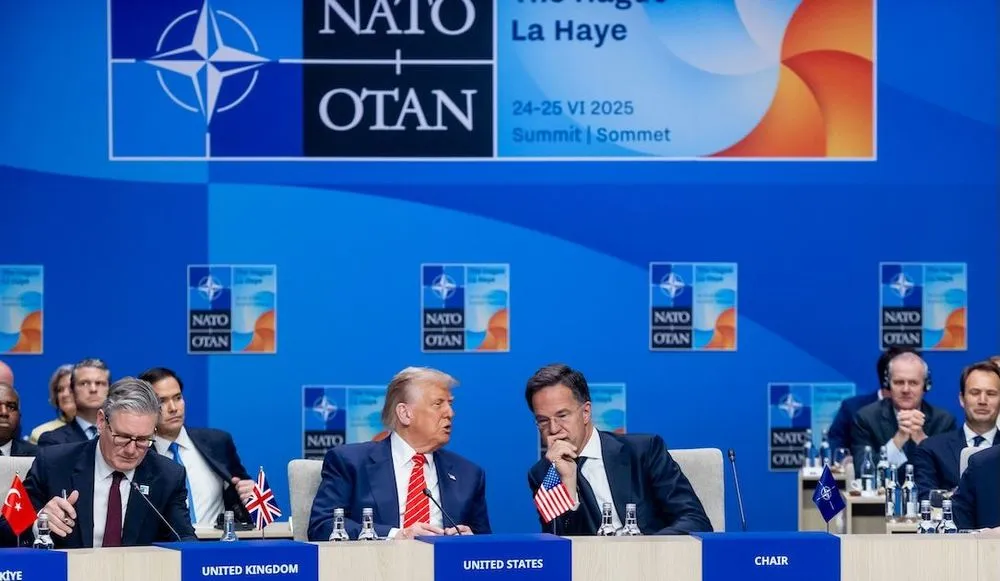NATO members aim for spending 5% of GDP on defense, with 1.5% eligible for cyber
NATO allies reached an agreement this week to increase their defense spending to 5% of GDP within a decade, with 3.5% to go toward core defense and the remaining 1.5% of GDP on indirect defense spending, including cybersecurity capabilities.
The expanded range of what amounts to defense spending — now including investments in energy and supply chain resilience, logistics infrastructure and innovation — relates immediately to strategic concerns highlighted by Russia’s full-blown invasion of Ukraine and also to the systemic challenges posed by what NATO describes as China’s “stated ambitions and coercive policies.”
Investment in defenses against cyberattacks comes as experts warn that even incidents below the threshold of starting an armed conflict are having “strategically consequential effects” on NATO allies, and as NATO itself agreed to launch an integrated cyberdefense center at its military headquarters in Mons, Belgium.
Most of NATO’s 25 members currently spend less than 3.5% of GDP on defense.
Opening this week’s summit in The Hague, NATO Secretary General Mark Rutte said: “Security can no longer be thought of just as the traditional realms of air, sea and land, but also of technology, of cyber, of the strength of our democratic society.”
Some cyber spending is expected to fall under the core 3.5% commitment, as per the standardized definition of military spending used by NATO, and will include budgets for military cyber commands and protections for operational military networks that are covered under national defense budgets.
There is no standardized definition of the relevant civilian investments to be counted within the 1.5% section. While these are expected to include efforts to protect critical national infrastructure and logistics hubs, concerns have been raised that the lack of standardization could encourage creative accounting among some allies.
German think tank Bertelsmann Stiftung warned that the 1.5% section of defense spending “remains conceptually broad, functionally vague, and open to national interpretation.”
‘Daddy’ Trump
The declaration released on Wednesday was notably the shortest issued at the conclusion of any of NATO’s annual summits, something the European Policy Centre suggested indicated a desire to avoid controversy among European allies and with the United States.
The headline spending increase to 5% has been seen as a response to decades of criticism from the U.S. about the disproportionate burden it carries for defense in Europe — a point heavily stressed by President Donald Trump.
Rutte notably praised Trump while speaking to the media during the conference, crediting him for allies’ commitment to increase defense spending and joking that “daddy has to sometimes use strong language” after the U.S. president had recently swore while talking about the Israel-Iran conflict.
As of NATO’s official estimates for 2024, the United States accounted for 66% of the alliance’s entire defense spending, despite representing only 55% of the alliance’s combined GDP.
Complaints about European frugality date back to the alliance’s founding in the 1950s and have since been repeated by U.S. administrations on both sides of the political spectrum, including those of Harry Truman, Jimmy Carter, Ronald Reagan and Barack Obama.
These complaints were dramatically elevated by Trump, who in a bombastic statement during the 2024 election campaign warned that the U.S. would not only not protect “delinquent” allies from Russian aggression, but that he would “encourage them [Russia] to do whatever they want. You gotta pay.”
Despite criticisms of this statement — and fears over Trump’s commitment to the alliance — there is no indication that the United States has encouraged Russia to attack any of the eight members who still do not meet NATO’s previous 2% spending target, including Canada, Italy and Spain.
Despite the declaration, Spain’s Prime Minister Pedro Sanchez has argued that the country will avoid meeting the spending target of 5% of GDP. Trump criticized Spain’s decision, but told journalists he stood by NATO’s Article 5 defense commitment that an attack against one ally would be treated as an attack against all of them: “I stand with it. That’s why I’m here. If I didn’t stand with it, I wouldn’t be here.”
Alexander Martin
is the UK Editor for Recorded Future News. He was previously a technology reporter for Sky News and a fellow at the European Cyber Conflict Research Initiative, now Virtual Routes. He can be reached securely using Signal on: AlexanderMartin.79



